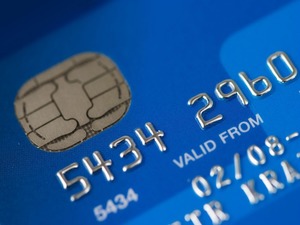 Hackers are the new bank robbers in a very literal sense. Increasingly, hackers have taken to infiltrating bank networks specifically for the purpose of infecting ATMs attached to their network with malicious code that makes stealing from them a snap.
Hackers are the new bank robbers in a very literal sense. Increasingly, hackers have taken to infiltrating bank networks specifically for the purpose of infecting ATMs attached to their network with malicious code that makes stealing from them a snap.
Once the malware has been installed on a target machine, a lower level member of the hacker’s organization can simply walk up and activate the code via a pre-defined numeric sequence, causing it to spit out money.
All the low-level hacker has to do is pocket it, take it back to HQ, and divide the spoils.
It gets even better from the hacker’s point of view, though. The same malware that can be triggered to launch the “Cash Out” style attack described above can also collect debit card information from anyone who uses the machine, enabling them to double dip, stealing not just from the bank, but also from a growing collection of its customers.
Considering the extreme risks involved with “Old School” bank robbing, this is a pretty attractive option, and it’s not at all hard to see why hackers have been increasingly drawn to it.
Thus far, attacks like these have been seen in the Far East, but haven’t yet made their way to Europe or America in any significant way. Given their level of success, however, it’s just a matter of time before we start seeing similar attacks here.
So far, the largest attack of this type occurred in Taiwan, in July 2016, when a group of hackers orchestrated a highly coordinated attack that struck 41 different ATMs and saw the group make off with a hefty $2.7 million in cash.
Again, this is small potatoes compared to some other, more mainstream attacks. Take the malware Carbanak, for instance, which has been tied to bank thefts totaling more than $1 billion dollars in a combination of fraudulent wire transfers and ATM attacks. Even so, the trend is a growing one, and it’s all but inevitable that we’ll start seeing them in the US, probably sooner rather than later.





 The hackers of the world have been busy recently, but this latest report from the SEC shows that not only has the number of their attacks been increasing, but also that the level of sophistication continues to grow by leaps and bounds as well.
The hackers of the world have been busy recently, but this latest report from the SEC shows that not only has the number of their attacks been increasing, but also that the level of sophistication continues to grow by leaps and bounds as well.


